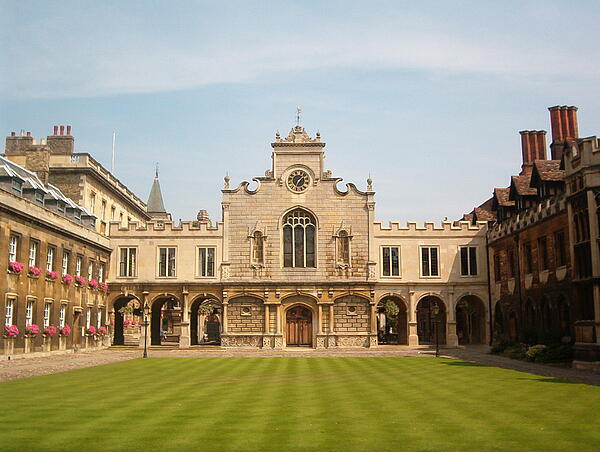Medieval Colleges at Cambridge
The colleges at the University of Cambridge are, perhaps unsurprisingly, steeped in medieval history. The university’s first colleges were founded back in the 13th Century, with Peterhouse (founded by the Bishop of Ely in 1284) the first to be officially recognised.
The next to be recognised were King’s Hall in 1317 by King Edward II followed by Michaelhouse in 1324 by Hervey de Stanton, although both of these colleges are now closed. The four college to be founded was Clare College (originally University Hall), which is the second oldest surviving college.
Pembroke College, which was founded by the widow of the Earl of Pembroke, Lady Mary de Valence, in 1347, is the third oldest surviving college and was the fifth to be founded.

At the start of the 13th Century, Cambridge was a busy commercial town with at least one school with a strong reputation. However, in 1209, scholars who were fleeing hostile townsmen in Oxford sought refuge in Cambridge and settled in the town.
Initially, these scholars lived in lodgings around Cambridge, and it wasn’t long before houses were hired as hostels and a Master put in charge of students.
In 1284, Hugo de Balsam, Bishop of Ely, decided to transfer his scholars to Peterhouse College and purchased two houses to accommodate fourteen of his “worthy but impoverished fellows” and a Master.
The Church of St Peter without Trumpington Gate was then chosen as a place for the students to study. As a college founded by a bishop, Peterhouse College ensured all of the students studied Theology.
It was a papal bull from Pope Gregory IX in 1233 that sealed the university’s future as one of the most eminent universities in the world, stating that Cambridge graduates had the right to teach “everywhere in Christendom”.
See also:
MLA Citation/Reference
"Medieval Colleges at Cambridge". HistoryLearning.com. 2025. Web.
